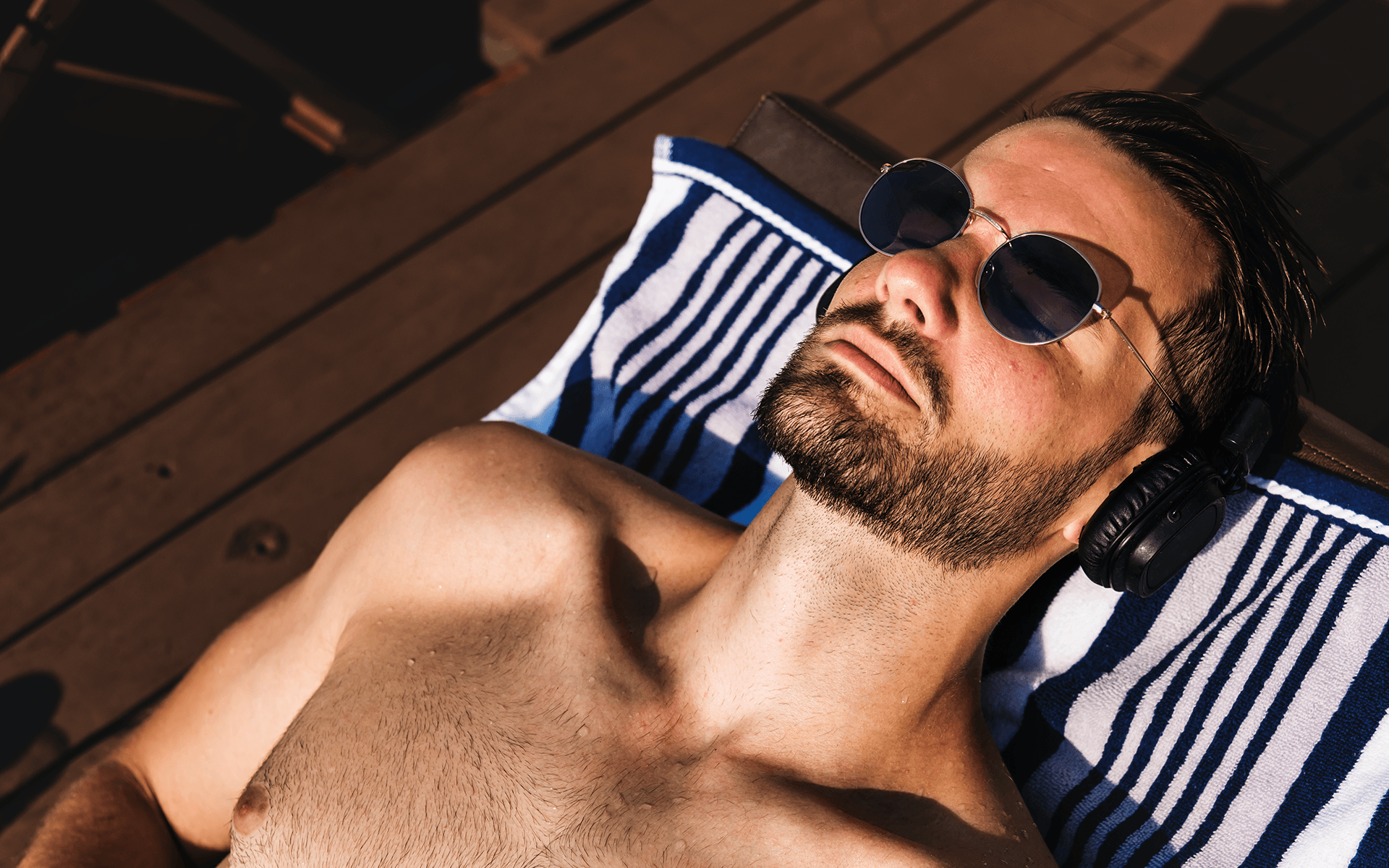We’re well into summer now. With the UV index going up, we are all aware of the importance of sunscreen to protect our skin from getting burnt, developing problems over time, and ageing prematurely. Those with eczema have an even more complicated relationship with the sun. And while eczema affects millions of people worldwide, not everyone experiences it in the same way.
What is eczema, exactly?
Eczema is also referred to as atopic dermatitis, a chronic condition that results in persistent skin inflammation. The exact cause of eczema is unknown, but it is believed to be related to an overactive immune system response.
Flare-ups of eczema lead to intense itching, redness, and rash. These areas may be cracking, crusting, or oozing and can get intensely uncomfortable.
Sun exposure triggers many people with eczema, as it can further dry out the skin and exacerbate inflammation. While there is no cure for eczema, treatments can help control symptoms and prevent flare-ups. For some people with eczema, avoiding sun exposure is one of the best ways to keep the condition under control.
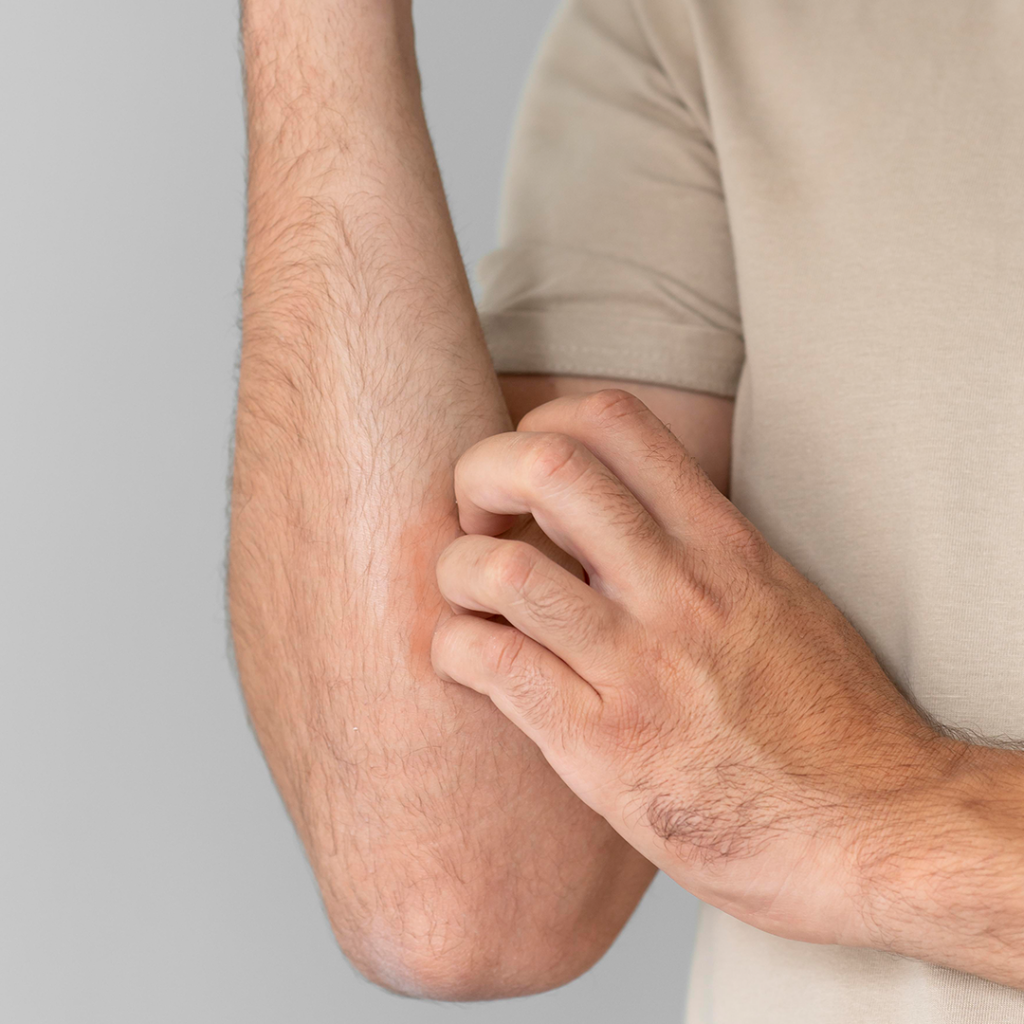
Practice safe exposure to the sun
It’s a common misconception that eczema sufferers should altogether avoid the sun. While it’s true that too much sun can trigger eczema flare-ups, a little bit of sunlight can help manage the condition.
Sunlight helps the body produce vitamin D, essential for healthy skin. Vitamin D helps reduce inflammation and can improve the skin’s barrier function, making it less susceptible to irritation. For best results, limit exposure to the sun to no more than 15 minutes per day and be sure to use a sunscreen with an SPF of 50.
To understand how to treat skin prone to eczema and prevent flare-ups, we must first understand how inflammation works. When your skin is inflamed, your body is trying to tell you that it is perceiving an attack. In the case of eczema, genetics and bacteria on the skin play a role in this reaction. For example, people who suffer from eczema may have more inflammatory cells in their skin. They may also have a compromised skin barrier compared to others with normal skin.
The ideal skincare routine for eczema-prone skin
All skincare routines should start with cleansing. With problem skin, the choice of cleanser is a crucial and often-overlooked step. No matter how effective treatments are, a harsh cleanser can quickly undo the benefits gained. And so, cleansing should be seen as the first step in preparing the skin, removing grime and debris, and reducing inflammation.
Lipikar Cleansing Oil AP+ is a lipid-replenishing cleanser in an oil form ideal for all skins but especially suited for those with dry and atopic eczema-prone skin. Lipikar Cleansing Oil AP+ maintains and helps regain skin balance, reducing the frequency of flare-ups. It relieves itching and therefore scratching with each use.
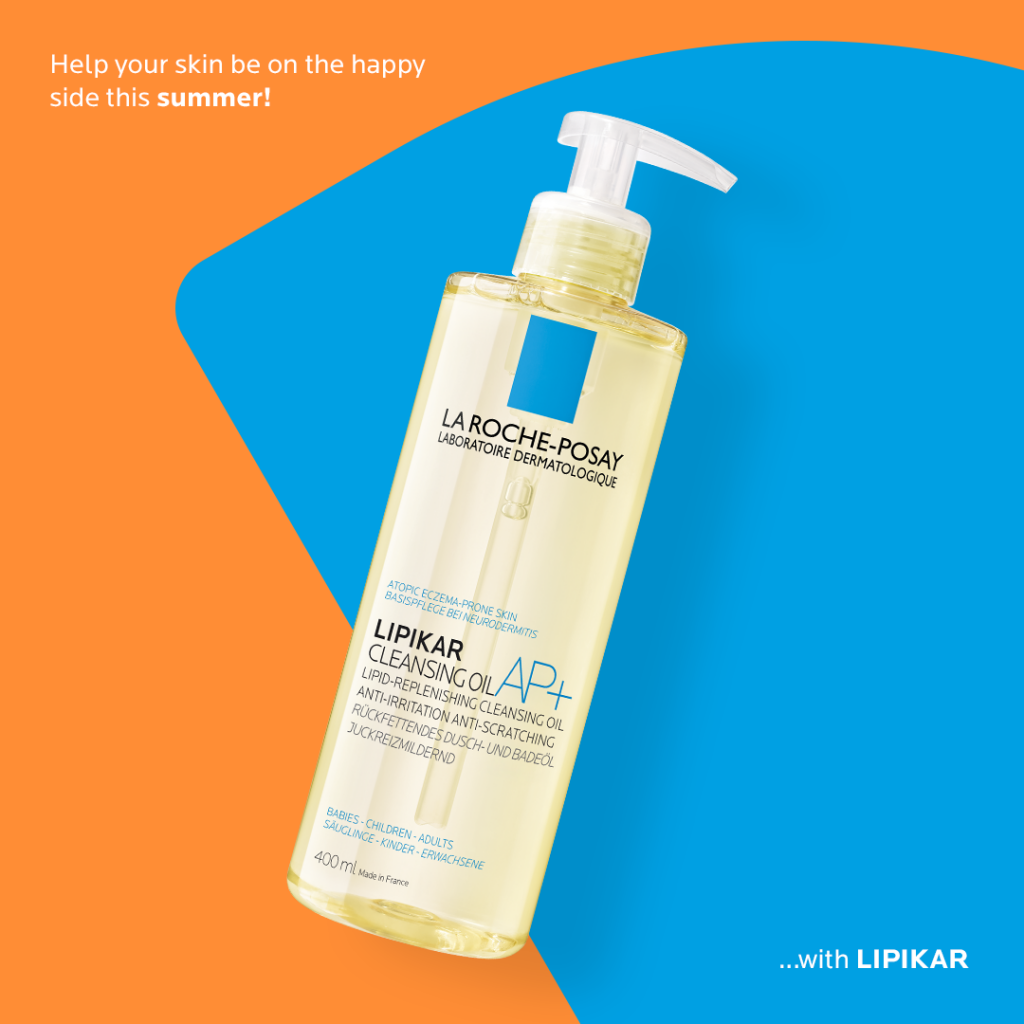
Once the skin is clean and dry, Lipikar Baume Light AP+M treatment should follow. This intense moisturizer combines a triple action effect with a light texture. Suitable for the whole family, it reduces the number of flare-ups by soothing, hydrating, and reducing itchiness.
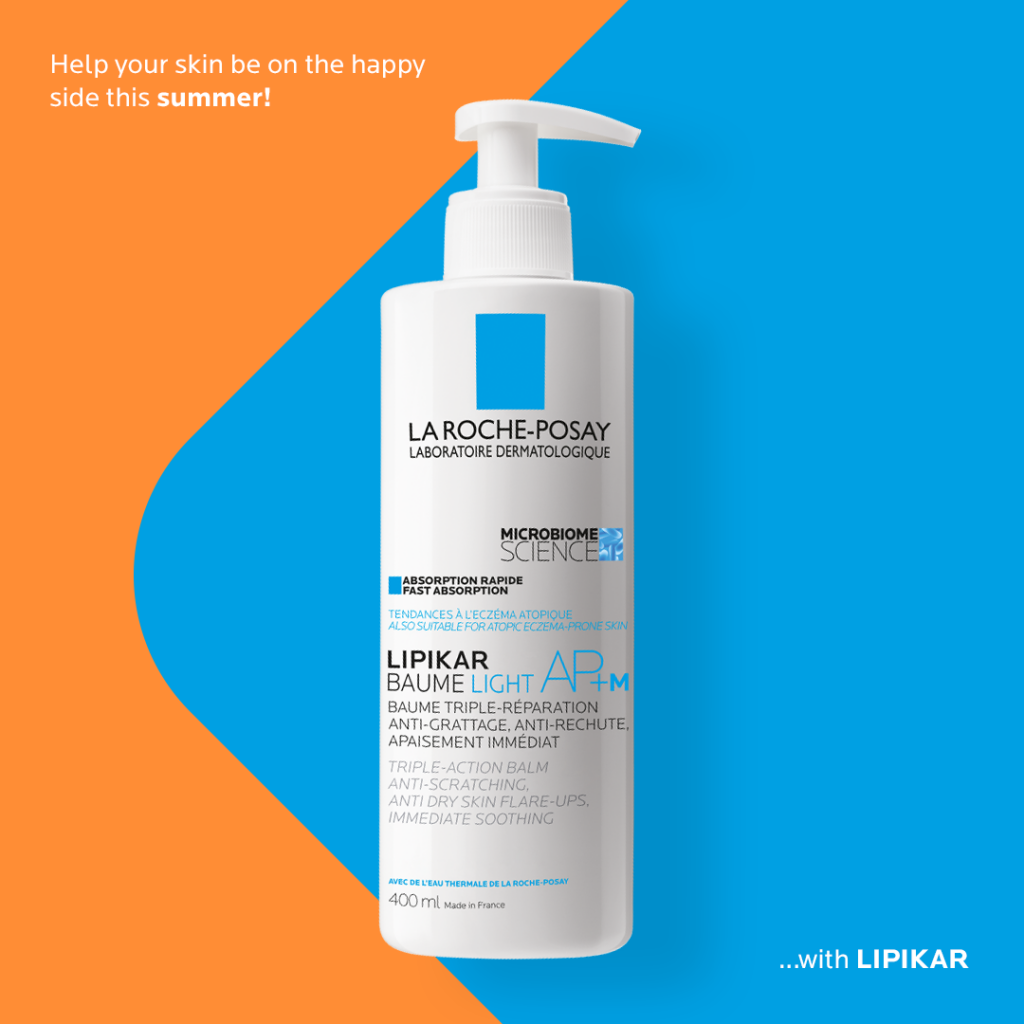
The skin routine is completed with the application of sun protection. Anthelios Ultra Invisible Spray SPF50+ for adults and Anthelios Dermo-Pediatrics Invisible Spray SPF50+ for kids offer high coverage in a convenient spray formula. Both sun protection products are formulated for sensitive skin and are ultra-resistant to water, sweat, and sand. The lightweight formula ensures no stickiness and no white marks on the skin.
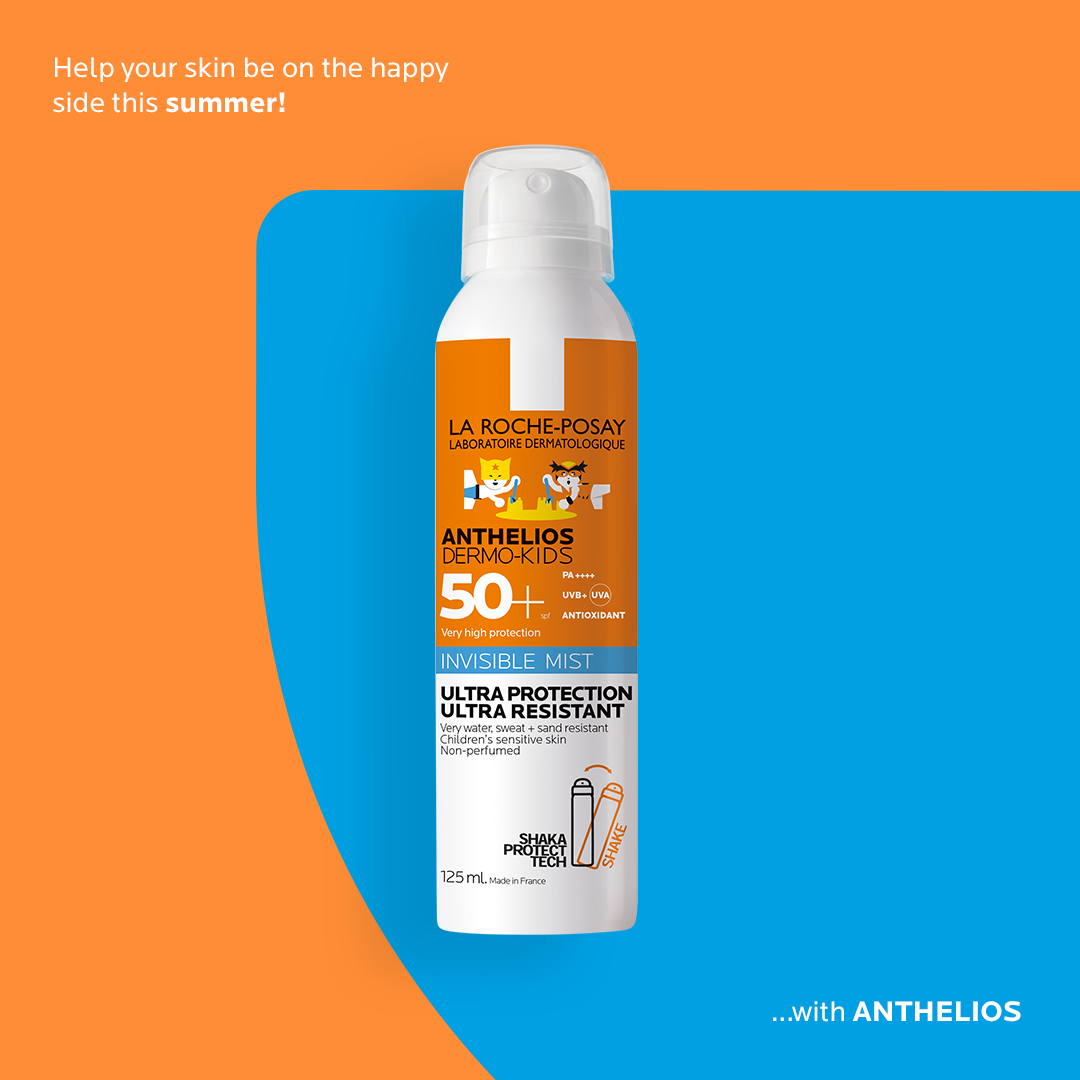
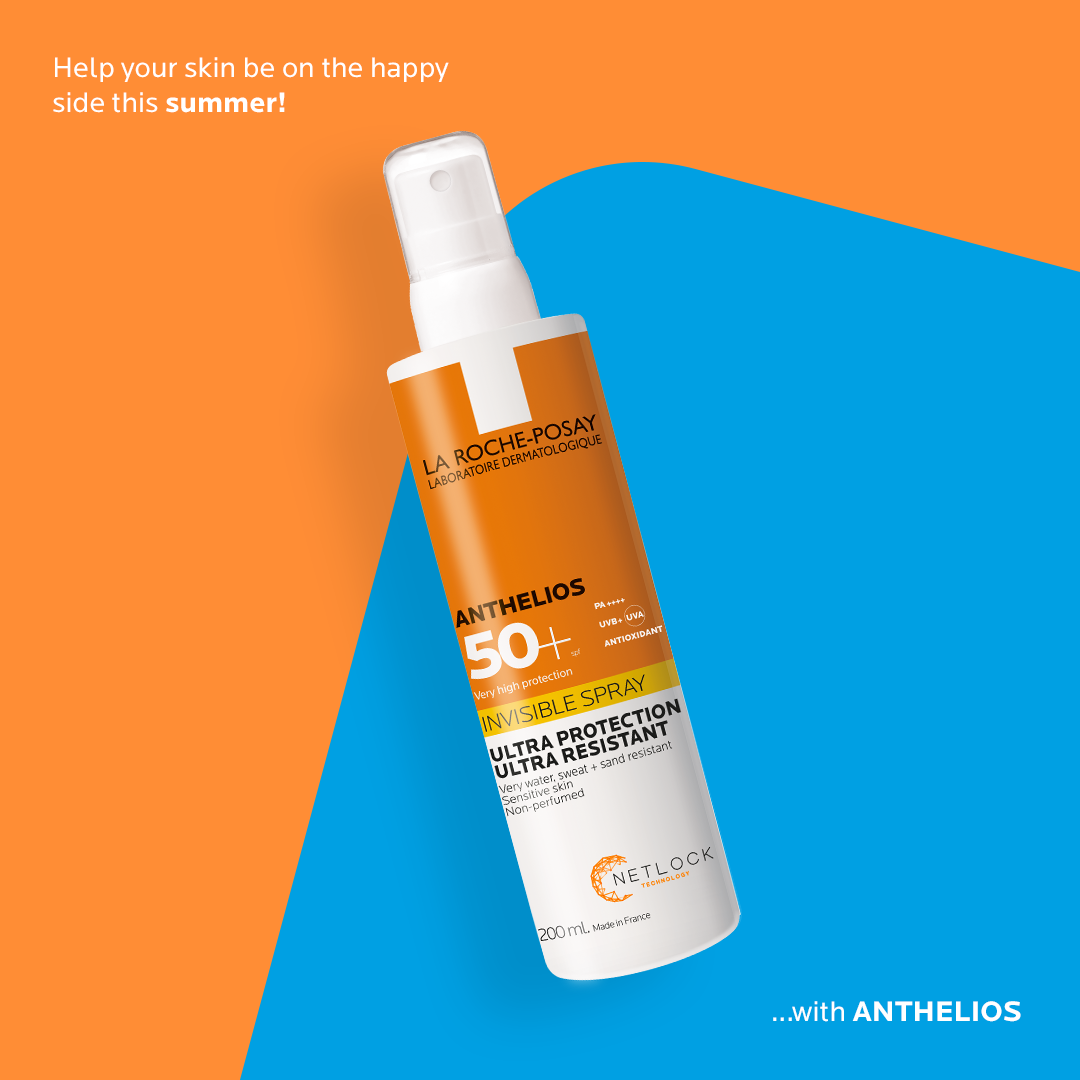
Treatment for eczema with Lipikar Baume Light AP+M
Let’s look deeper into the ‘triple action effect’. Lipikar Baume Light AP+M uses the triple technology of Aqua Posae (AP) and Microresyl (M) with a high concentration of Thermal Spring Water.
Aqua Posae filiformis is a cultivated bacterium present in the La Roche-Posay thermal spring water. It acts as a prebiotic; it rebalances the skin microbiome, strengthening and restoring it. Together with Microresyl, AP limits the growth of bacteria involved in eczema. Shea butter, niacinamide, and thermal spring water restore the skin barrier, reduce irritation and redness, and soothe the skin.
When applied daily, Lipikar Baume Light AP+M spaces out flare-ups and reinforces the skin, normalizing the skin condition, leaving it itch-free and more comfortable.
Sources:
Eczema and Sun Exposure: Does It Help? (n.d.). Retrieved 31 May 2022, from https://www.verywellhealth.com/eczema-and-sun-exposure-82721
Sun and Eczema | National Eczema Society. (n.d.). Retrieved 31 May 2022, from https://eczema.org/information-and-advice/triggers-for-eczema/sun-and-eczema/
